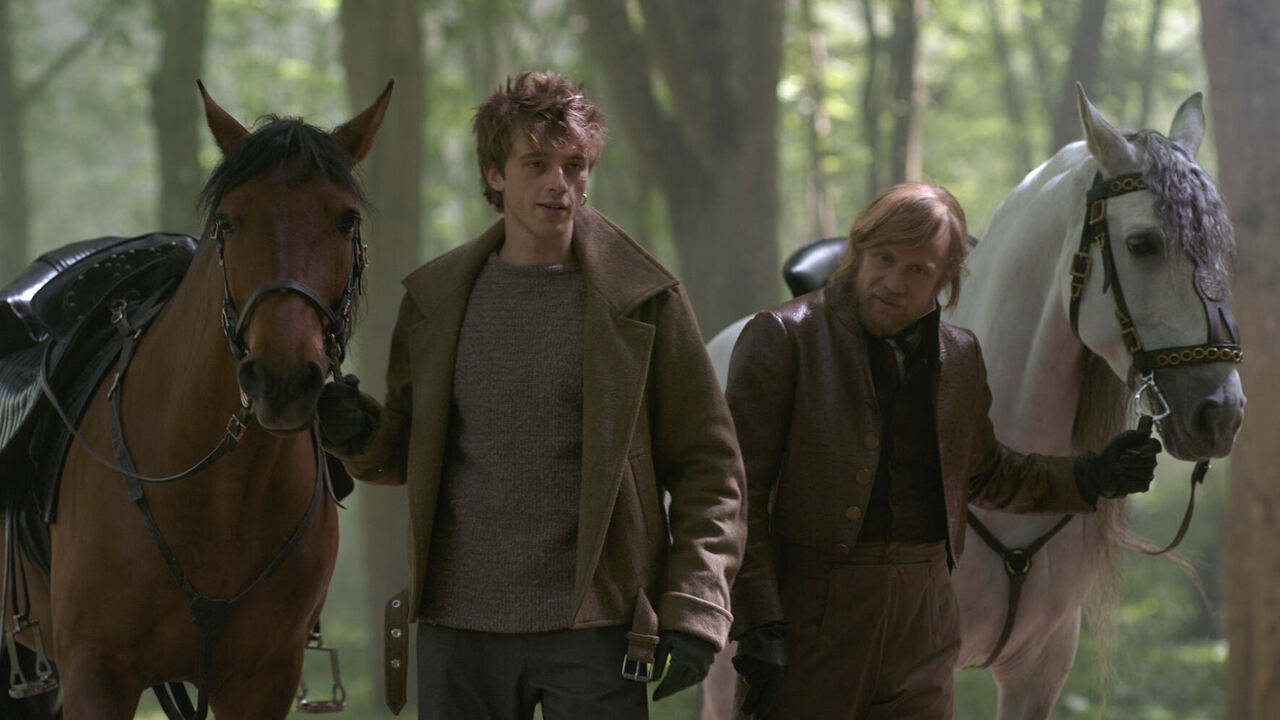
Episode six of Carême, named Trompe l’Oeil, presents a vibrant blend of allure, mystery, and exquisite dishes, intensifying the elements of espionage and feeling that have been brewing throughout the series. As the plot reaches a climax, the series presents a richly textured tale that combines political intrigue, romantic involvement, and the exquisite craft of French cuisine into an enjoyable hour of television.
At the center of this chapter is Antonin Carême. Depicted with delicate allure and escalating intensity by Benjamin Voisin, Carême's evolution takes the spotlight. No longer merely a chef fueled by ambition, he now navigates through hallways of influence, crafting plans as deftly as he whips meringues. His abilities are no longer limited to the kitchen; they have transformed into instruments in a bigger, more dangerous game.
The episode’s title, Trompe l’Oeil, a French phrase meaning visual trickery, ingeniously highlights the underlying theme of the hour: appearances can be misleading. Each smile, every meal, and every action hides a more profound intention. This is most evident in Carême’s boldest move to date: his secretive entry into Josephine Bonaparte’s personal chambers. Concealing his espionage within a desert, he discreetly mixes her treat with a sedative, establishing a short opportunity to gather vital data, specifically Napoleon’s itinerary. It’s a crucial moment that indicates the lengths he’s prepared to go to ensure his father’s freedom, blending the distinction between honor and necessity.
The visuals of the show remain remarkable, possessing a cinematic depth that transforms each scene into a living artwork. The difference between the golden shine of busy kitchens and the cool dimness of hidden parlors illustrates the dual nature of Carême’s realm. Food is not merely nourishment or creativity, it’s strength. The camera’s love for elaborate pastries, shiny sauces, and decorative table arrangements gives the cooking scenes a respect that competes with any action sequence. The dishes are crafted with such intricacy and purpose that they emerge as silent characters in their own right, mirroring the episode's themes and feelings.
Even with its numerous strengths, the episode sometimes edges toward excess. The romantic elements, especially those featuring Henriette and Agath, enrich Carême’s emotional experience, though they occasionally tip into melodrama. Although it’s reasonable that the series aims to delve into the personal sacrifices of his dual existence, certain scenes seem to detract from the political and culinary excitement that distinguishes the show. Nonetheless, these instances provide insights into Carême’s fragility, reminding the audience that behind the keen intellect and steady demeanor lies a man being pulled in multiple directions.
The tension between Carême and the cunning Talleyrand continues to drive much of the plot forward. Their conversations are charged with unspoken threats and subtle manipulations. Talleyrand sees Carême not just as a talented cook but as a means to an end, a tool to gather intelligence under the guise of hosting and hospitality. Carême, for his part, seems increasingly aware of the strings being pulled, and the tension between resistance and obligation creates a layered, nuanced relationship. Watching these two characters dance around each other, each trying to maintain control while appearing deferential, is one of the episode’s greatest pleasures.
Beyond the main plot, the show’s atmosphere remains a character in itself. The production design continues to impress with its commitment to historical accuracy. Every room feels lived in, every costume meticulously tailored. There’s a constant, quiet background hum of a world in transition, France navigating its uncertain post-revolution identity, people shifting alliances to survive, and art (both culinary and political) being used as currency.
There’s something inherently theatrical about the way the conversations unfold as if each interaction is a performance meant to mask true intention. What makes Trompe l’Oeil so engaging is not only the unexpected plot turns or the visual style, but the manner in which it portrays the emotional and moral intricacies of its characters. Carême is not an ordinary hero. He makes dubious decisions. He is not truthful. He controls. Yet he acts out of obligation, out of urgency, and out of a wish to safeguard those dear to him. That moral uncertainty is what renders him so captivating and what gives the series a sense of reality despite its opulent backdrop.
Ultimately, the sixth episode of Carême makes us crave additional content. It successfully balances between opulence and genuine emotion, never leaning excessively into showiness or sentiment. While it sometimes dwells on romantic side trips, its essence is still robust: a tale of a man maneuvering through an ever more perilous world with the only resources available to him—his intellect, his intuition, and his remarkable ability to craft beauty from disorder.
Trompe l’Oeil is a sophisticated and captivating installment that lifts Carême above an ordinary period piece. It’s a reflection on the strength of deception, the price of aspiration, and the delicacy of faith, all enveloped in the dazzling allure of 19th-century France. As the series advances, the richness of its narrative also deepens, guaranteeing that each moment of drama has a memorable impact.
Final Score- [8/10]
Hi Everyone, after a due consideration, we have decided that we will be open for donations to help us in managing our website. We will be greatful for any kind of amount we receive. Thanks!
— Midgard Times 🎬 (@Moviesr_net) January 4, 2026
PayPal- [email protected] pic.twitter.com/DlNNz5Npm5
Get all latest content delivered to your email a few times a month.
Bringing Pop Culture News from Every Realm, Get All the Latest Movie, TV News, Reviews & Trailers
Got Any questions? Drop an email to [email protected]